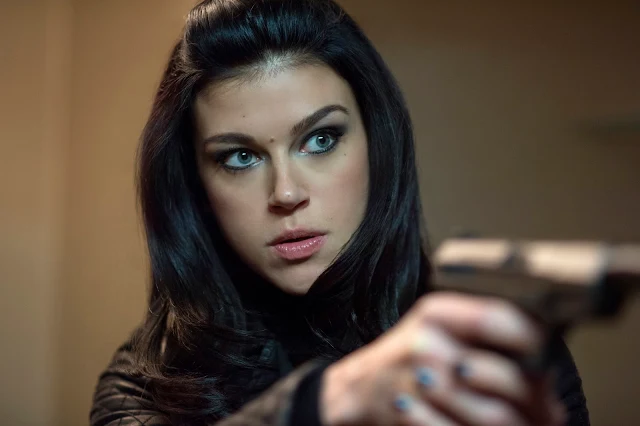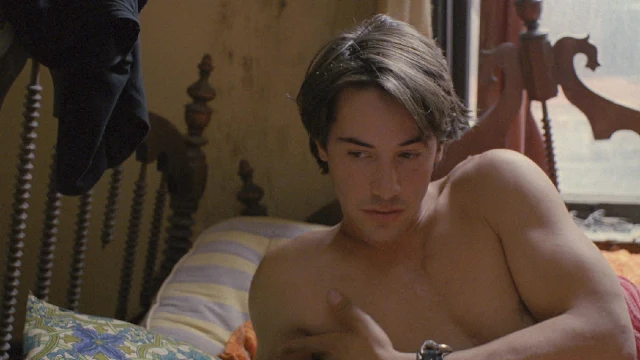Cast: Keanu Reeves, Riccardo Scamarcio, Ian McShane, Ruby Rose, Common, Claudia Gerini, Lance Reddick, Laurence Fishburne, Tobias Segal, John Leguizamo, Bridget Moynahan, Franco Nero, Peter Stormare. Screenplay: Derek Kolstad. Cinematography: Don Laustsen. Production design: Kevin Kavanaugh. Film editing: Evan Schiff. Music: Tyler Bates, Joel J. Richard.
"You've got a beautiful house, John," the villain (Riccardo Scamarcio) says to the hero (Keanu Reeves), and we silently think the rest: "Too bad if something happened to it." It does, of course, and we are back in the world of John Wick. Grimly stoic as usual, the protagonist takes a licking and keeps on John Wicking. Wickworld is a place with its own peculiar laws, one in which extremely violent things happen, from automobile demolition derbies to shootouts in the subway, and no authorities seem to intervene and passersby often don't even take notice. The choreographed violence becomes tolerable -- it's part ballet and part animated cartoon. In the extended fight between Wick and Cassian (Common), there's no sound but gunshots, blows landing, and combatants grunting, a kind of percussive duet that's as rhythmically compelling as Gene Krupa's drum solo on Benny Goodman's "Sing, Sing, Sing."


.jpeg)

.jpg)













.jpeg)
.jpeg)
.jpeg)








